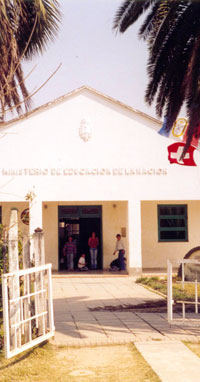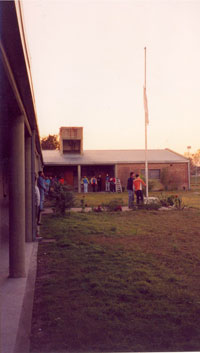Measuring Developmental Idealism and Family Life (Argentina)
Arland Thornton, Georgina Binstock P.I.s
This project is based on an exploratory/developmental research grant from the National Institutes of Child Health and Human Development focusing on developmental idealism and marriage, childbearing, and divorce. The purpose of the project is to create and test questionnaires and protocols that will be appropriate for measuring developmental idealism and its relationship to marriage, childbearing, and divorce in a wide variety of settings around the world.
Developmental idealism, which grows out of the influential models of modernization and development, identifies goals to be pursued, a means for evaluating family life, a causal framework identifying causal influences between family and social and economic life, and statements about human rights. There are four main propositions of developmental idealism: (a) modern social and economic life is good and attainable; (b) modern family life is good and attainable; (c) modern families and modern socioeconomic conditions causally influence each other; and (d) human beings have the right to be free and equal, with relationships based on consent. We believe that these propositions have been disseminated widely around the world and have had great influence on family and demographic life.
Despite the theoretical and practical importance of developmental idealism for family life, there are no well-recognized tools to measure acceptance or rejection of developmental idealism in the world’s populations. This dearth of measurement tools makes it difficult to implement a research program investigating developmental idealism and its influence on family life. This project will create and evaluate measures of beliefs concerning developmental idealism and their relationship to marriage, childbearing, and divorce. Qualitative studies will guide the creation of these measurement tools, and we will conduct pilot studies in Argentina, China, Egypt, Iran, and the United States to test the extent to which our measures are appropriate in these disparate settings. The measures created in this project will provide the means to launch in a future project an international program of research concerning developmental idealism and its role in family life.







